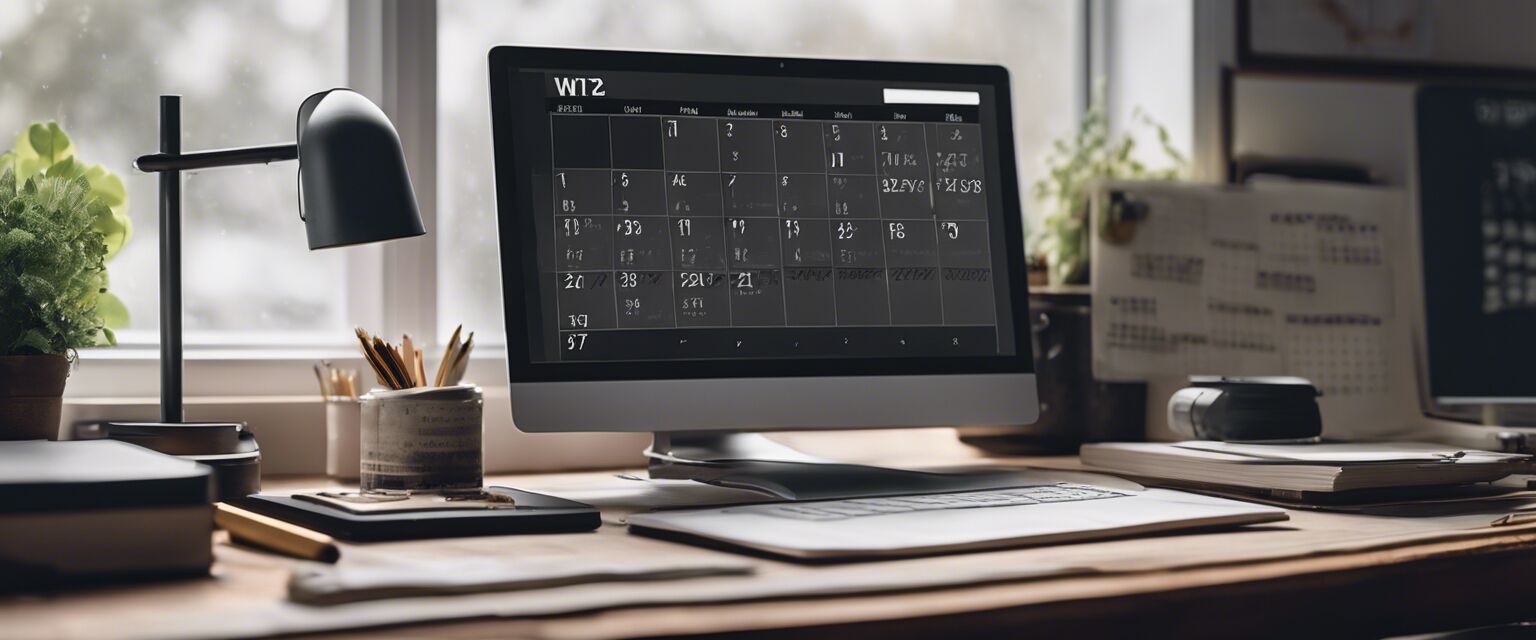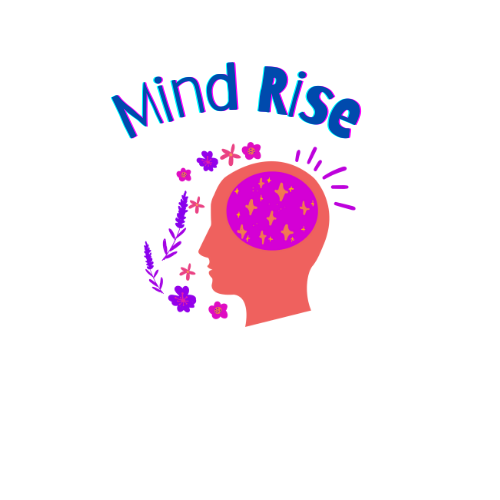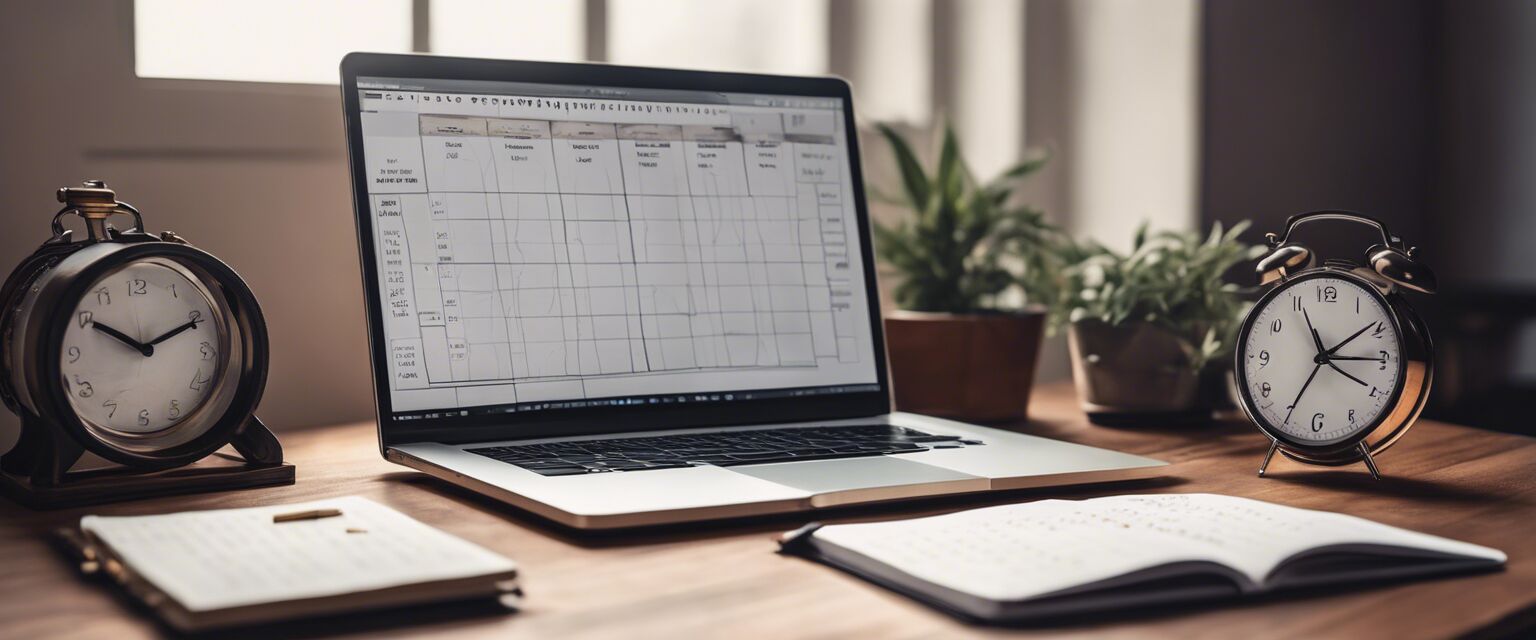
Time Management
Key Takeaways
- Effective time management balances work, personal life, and self-care.
- Utilizing tools like planners and calendars can enhance productivity.
- Prioritizing tasks is essential for achieving goals.
- Regular breaks and self-reflection improve focus and efficiency.
Time management is essential for success in both personal and professional life. With various responsibilities and distractions, mastering the art of managing time can lead to improved productivity, reduced stress, and a better work-life balance. In this article, we will explore various strategies and tools to help you manage your time effectively.
Understanding Time Management
Time management involves planning and exercising conscious control over the amount of time spent on specific activities. Good time management enables an individual to complete more in a shorter period of time, lowers stress, and leads to career success.
Why is Time Management Important?
- Increases productivity: By managing time effectively, you can accomplish more tasks in less time.
- Reduces stress: Proper planning helps you avoid last-minute rushes.
- Improves decision-making: Better time management leads to more informed and timely decisions.
- Enhances self-discipline: It helps in developing a routine and sticking to it.
Strategies for Effective Time Management
1. Set Clear Goals
Defining clear, achievable goals is the first step toward effective time management. Consider using the SMART criteria:
- S: Specific
- M: Measurable
- A: Achievable
- R: Relevant
- T: Time-bound
2. Prioritize Tasks
Not all tasks are created equal. Use the Eisenhower Matrix to categorize tasks into four quadrants:
| Quadrant | Description | Action |
|---|---|---|
| 1 | Urgent and Important | Do it immediately |
| 2 | Important but Not Urgent | Schedule it for later |
| 3 | Urgent but Not Important | Delegate it |
| 4 | Not Urgent and Not Important | Eliminate it |
3. Use Time Management Tools
Various tools can help you manage your time effectively. Consider using:
- Productivity planners
- Time management gadgets
- Digital calendars and scheduling apps
- Task management software
4. Establish a Routine
Creating a daily routine helps you allocate time for essential tasks. A structured day leads to improved focus and efficiency. Hereâs a sample routine:
| Time | Activity |
|---|---|
| 6:00 AM | Wake up and exercise |
| 7:00 AM | Breakfast and planning |
| 8:00 AM | Start work |
| 12:00 PM | Lunch break |
| 1:00 PM | Continue work |
| 5:00 PM | Wrap up and review |
5. Take Breaks
Regular breaks are crucial for maintaining focus and productivity. Consider the Pomodoro Technique, where you work for 25 minutes and then take a 5-minute break. This technique helps refresh your mind and improve efficiency.
Tools for Better Time Management
Various resources can assist you in managing your time effectively. Some popular tools include:
Tips for Beginners
- Start small: Implement one strategy at a time.
- Reflect on your progress weekly.
- Adjust your techniques as needed.
- Stay flexible and adaptable.
Common Time Management Mistakes
Being aware of common pitfalls can help you avoid them:
- Not setting clear goals.
- Procrastination.
- Overcommitting to tasks.
- Failing to track time spent on activities.
Conclusion
Mastering time management is an ongoing journey. By implementing the strategies discussed above, you can improve your productivity and achieve a better balance in your life. Remember to regularly review and adjust your techniques to fit your evolving needs.
Pros
- Increases productivity and efficiency.
- Reduces stress and anxiety.
- Enhances overall quality of life.
- Promotes self-discipline and responsibility.
Cons
- Requires consistent effort and commitment.
- Can feel overwhelming initially.
- May require the purchase of tools or resources.
- Not all strategies work for everyone.
Further Reading
For more insights on time management, check out these resources:











